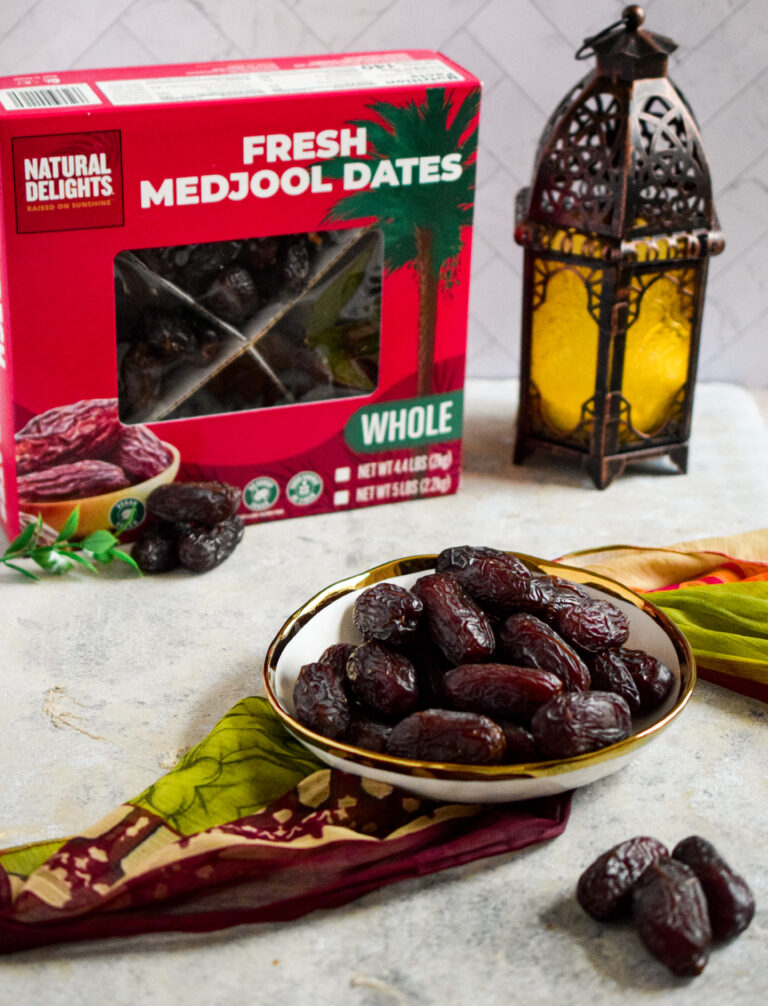Celebrating Ramadan with Natural Delights

By Natural Delights
Native to Morocco, Medjool dates are known as “the fruit of kings”, as they were originally eaten by royalty and thought to fend off fatigue. Nowadays, they are a staple in many households, especially during Ramadan.
The holy month of Ramadan begins in late March, with millions of worshippers committing themselves to prayer, reflection, and fasting from just before sunrise until sunset each day of the month.
To replenish after the fasting period, many Muslims turn to Medjool dates. The fruit contains high levels of complex carbohydrates, making them an excellent choice to secure nutrition and energy during this practice.
Medjool dates are key to suppress sugar cravings thus helping Muslims to control appetite. Dates are much easier to digest than other nutrient dense foods, making them much more appropriate for breaking the fast without overworking the stomach and digestive system.
Natural Delights understands the importance of dates in Muslim culture and works hard to produce enough volume domestically and internationally to serve all customers year-round. To prepare for the holy festivity, the brand has allied with halal food blogger Yvonne Maffei to produce a Ramadan Recipe Guide & Preparation Tips.
In addition, the company offers large window boxes that make beautiful gifts for friends and family to share together.
Medjool dates contain 50% more potassium than bananas, study finds
Potassium is crucial in numerous vital body processes. The substance, mostly known to be present in bananas, can also be found in Medjool dates with twice the concentration, according to the USDA.
One Medjool date provides 167 milligrams (mg) of potassium, making them an excellent choice to secure daily intake of this mineral. This component is key to keeping skin cells hydrated and moisturized and it also builds muscle tissues and aids in muscle recovery. However, its biggest contribution is maintaining heart health and kidney function.
The complex carbohydrates found in Medjool dates are digested at a slower rate, and make them a good source of dietary fiber. This allows them to release energy to the body over a longer period of time, helping to avoid the “crash effect” from refined sugars.
Containing 12% of the daily requirement of dietary fiber, Medjool dates can help promote digestive and cardiovascular health. When fiber binds with cholesterol, it prevents absorption into the bloodstream. This keeps cholesterol’s fatty deposits from building up in the arteries.
Studies have also shown that soluble fiber may also help control blood sugar levels and reduce blood pressure.












































